 W
WJózef Baka was a late Baroque poet, Jesuit priest and missionary. Born in March of either 1706 or 1707, probably in Nowogrodek, Baka is regarded as one of the most prominent poets of the 18th century Polish-Lithuanian Commonwealth.
 W
WJohn Barclay was a Scottish writer, satirist and neo-Latin poet.
 W
WJoachim du Bellay was a French poet, critic, and a founder of the Pléiade. He notably wrote the manifesto of the group: Défense et illustration de la langue française, which aimed at promoting French as an artistic language, equal to Greek and Latin.
 W
WSir Francis Bernard, 1st Baronet was a British colonial administrator who served as governor of the provinces of New Jersey and Massachusetts Bay. His uncompromising policies and harsh tactics in Massachusetts angered the colonists and were instrumental in the building of broad-based opposition within the province to the rule of Parliament in the events leading to the American Revolution.
 W
WTheodore Beza was a French Reformed Protestant theologian, reformer and scholar who played an important role in the Reformation. He was a disciple of John Calvin and lived most of his life in Geneva. Beza succeeded Calvin as a spiritual leader of the Republic of Geneva, which was originally founded by John Calvin himself.
 W
WProf John Stuart Blackie FRSE was a Scottish scholar and man of letters.
 W
WJean-Jacques Boissard was a French antiquary and Neo-Latin poet.
 W
WJames Bowdoin II was an American political and intellectual leader from Boston, Massachusetts, during the American Revolution and the following decade. He initially gained fame and influence as a wealthy merchant. He served in both branches of the Massachusetts General Court from the 1750s to the 1770s. Although he was initially supportive of the royal governors, he opposed British colonial policy and eventually became an influential advocate of independence. He authored a highly political report on the 1770 Boston Massacre that has been described by historian Francis Walett as one of the most influential pieces of writing that shaped public opinion in the colonies.
 W
WTituš Brezovački was a Croatian playwright, satirist and poet.
 W
WGeorge Buchanan was a Scottish historian and humanist scholar. According to historian Keith Brown, Buchanan was "the most profound intellectual sixteenth century Scotland produced." His ideology of resistance to royal usurpation gained widespread acceptance during the Scottish Reformation. Brown says the ease with which King James VII was deposed in 1689 shows the power of Buchananite ideas.
 W
WPeter Bulkley was an influential early Puritan minister who left England for greater religious freedom in the American colony of Massachusetts. He was a founder of Concord, and was named by descendant Ralph Waldo Emerson in his poem about Concord, Hamatreya.
 W
WPieter Burman, also known as Peter or Pieter Burmann and distinguished from his uncle as "the Younger", was a Dutch philologist.
 W
WConrad Celtes was a German Renaissance humanist scholar and poet of the German Renaissance born in Franconia. He led the theatrical performances at the Viennese court and reformed the syllabi. In 1500, he published Tacitus' "Germania" and his rediscovered works and wrote the "Quatuor libri amorum" in 1500, after the model of Ovid.
 W
WCharles Chauncy was an Anglo-American clergyman, educator, and secondarily, a physician.
 W
WJohannes Dantiscus, was prince-bishop of Warmia and Bishop of Chełmno (Culm). In recognition of his diplomatic services for Polish kings, the bishop and poet is also known as the "Father of Polish Diplomacy."
 W
WGirolamo Fracastoro was an Italian physician, poet, and scholar in mathematics, geography and astronomy. Fracastoro subscribed to the philosophy of atomism, and rejected appeals to hidden causes in scientific investigation. His studies of the mode of syphilis transmission are an early example of epidemiology.
 W
WJan z Wielomowic Gawiński (c.1622–c.1684) was a Polish baroque poet.
 W
WJohann Heermann was a German poet and hymnodist. He is commemorated in the Calendar of Saints of the Lutheran Church on 26 October with Philipp Nicolai and Paul Gerhardt.
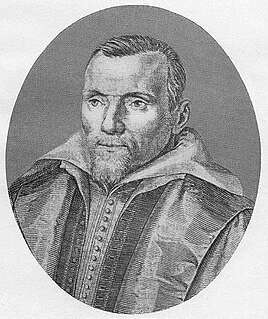 W
WDaniel Heinsius was one of the most famous scholars of the Dutch Renaissance.
 W
WNicolaas Heinsius the Elder was a Dutch classical scholar and poet, son of Daniel Heinsius.
 W
WHelius Eobanus Hessus was a German Latin poet and later a Lutheran humanist. He was born at Halgehausen in Hesse-Kassel.
 W
WEdward Holyoke was an early American clergyman, and the 9th President of Harvard College.
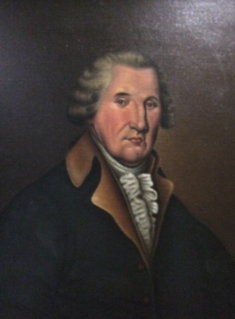 W
WWilliam Hooper was an American lawyer, politician, and a member of the Continental Congress representing North Carolina from 1774 through 1777. Hooper was also a signer of the United States Declaration of Independence, along with fellow North Carolinians Joseph Hewes and John Penn.
 W
WSidronius Hosschius, latinised form of Syderoen de Ho(o)sch, also known as Sidronius de Hossche and Sidron de Hossche was a Flemish poet and Jesuit priest. His contemporaries held him in great esteem for his elegant Latin verse and his works were reprinted several times during the 17th and 18th centuries.
 W
WMikołaj Hussowczyk. Other name spelling variants include Hussoviensis, Hussovianus, Ussovius, Hussowski, Gusowski); was an early Renaissance poet and humanist of Grand Duchy of Lithuania, and cultural and social activist. His most notable work is a poem Carmen de statura...bisontis.
 W
WGysbert Japiks or Japicx or Japix (1603–1666) was a West Frisian writer, poet, schoolmaster, and cantor.
 W
WSebastian Fabian Klonowic was a Polish poet and composer.
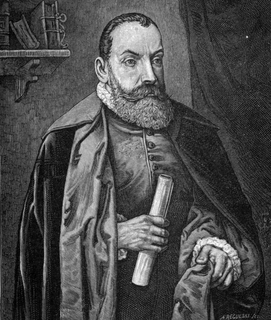 W
WJan Kochanowski was a Polish Renaissance poet who established poetic patterns that would become integral to the Polish literary language.
 W
WAndrzej Krzycki herbu Kotwicz was a Renaissance Polish writer and archbishop. Krzycki wrote in Latin prose, but wrote poetry in Polish. He is often considered one of Poland's greatest humanist writers.
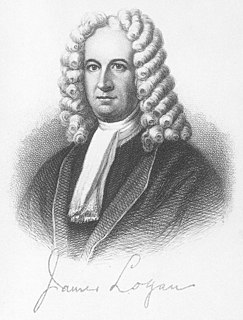 W
WJames Logan was a Scots-Irish colonial American statesman, administrator, and scholar who served as the fourteenth mayor of Philadelphia and held a number of other public offices.
 W
WMarko Marulić Splićanin, in Latin Marcus Marulus Spalatensis and Italian Marco Marulo, was a Croatian poet and Renaissance humanist. He coined the term "psychology".
 W
WMichael Tarchaniota Marullus or Michael Marullus was a Greek Renaissance scholar, poet of Neo-Latin, humanist and soldier.
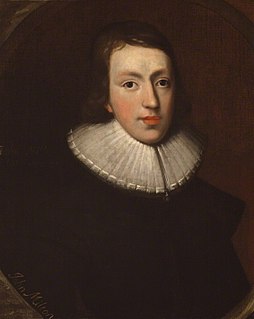 W
WJohn Milton was an English poet and intellectual who served as a civil servant for the Commonwealth of England under its Council of State and later under Oliver Cromwell. He wrote at a time of religious flux and political upheaval, and is best known for his epic poem Paradise Lost (1667), written in blank verse, and widely considered to be one of the greatest works of literature ever written.
 W
WTarquinia Molza was an Italian singer, poet, conductor, composer, and natural philosopher. She was considered a great virtuosa. She was involved with the famous Concerto delle donne, although whether she sang with them or coached them is not clear. She also played the viola bastarda.
 W
WAgnolo (Angelo) Ambrogini, commonly known by his nickname Poliziano, was an Italian classical scholar and poet of the Florentine Renaissance. His scholarship was instrumental in the divergence of Renaissance Latin from medieval norms and for developments in philology. His nickname, Poliziano, by which he is chiefly identified to the present day, was derived from the Latin name of his birthplace, Montepulciano.
 W
WGiovanni Pontano (1426–1503), later known as Giovanni Gioviano or Latin: Ioannes Iovianus Pontanus, was a humanist and poet from the Duchy of Spoleto, in central Italy. He was the leading figure of the Accademia Pontaniana after the death of Antonio Beccadelli in 1471, and the academy took his name.
 W
WAdriaan Reland was a noted Dutch Orientalist scholar, cartographer and philologist. Even though he never left the Netherlands, he made significant contributions to Middle Eastern and Asian linguistics and cartography, including Persia, Japan and the Holy Lands.
 W
WPhilip Rubens (1574–1611), was an antiquarian, librarian and philologist from the Low Countries. His younger brother was the painter Peter Paul Rubens.
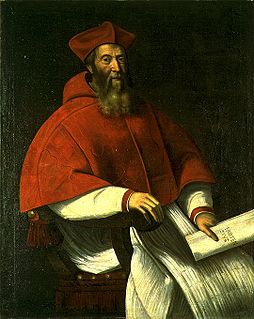 W
WJacopo Sadoleto was an Italian Roman Catholic cardinal and counterreformer noted for his correspondence with and opposition to John Calvin.
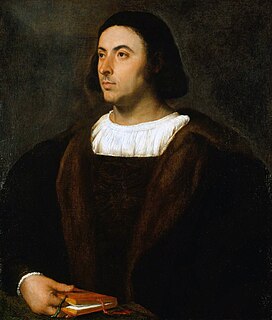 W
WJacopo Sannazaro was an Italian poet, humanist and epigrammist from Naples.
 W
WSir William Scott, 2nd Baronet of Thirlestane was a Scottish lawyer, known as a neo-Latin poet.
 W
WPetrus Scriverius, the Latinized form of Peter Schrijver or Schryver, was a Dutch writer and scholar on the history of Holland and Belgium.
 W
WJohannes Secundus was a New Latin poet of Dutch nationality.
 W
WMikołaj Sęp Szarzyński was an influential Polish poet of the late Renaissance who wrote in both Polish and Latin. He was a pioneer of the Baroque and the greatest representative of the metaphysical movement of the era in Poland. His love poems are often classed as mannerist. Jan Błoński has called Sęp Szarzyński a "mystical poet full of abstraction", and Wiktor Weintraub has called him "the most outstanding poet of the times of Jan Kochanowski". The poet's status in the history of Polish literature is controversial.
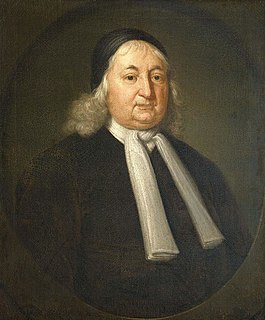 W
WSamuel Sewall was a judge, businessman, and printer in the Province of Massachusetts Bay, best known for his involvement in the Salem witch trials, for which he later apologized, and his essay The Selling of Joseph (1700), which criticized slavery. He served for many years as the chief justice of the Massachusetts Superior Court of Judicature, the province's high court.
 W
WErcole Strozzi was an Italian poet, the son of Tito Vespasiano Strozzi. He was a friend of Lucrezia Borgia, to whom he dedicated the poem La caccia. He married the poet Barbara Torelli and was murdered in Ferrara by an unknown assailant.
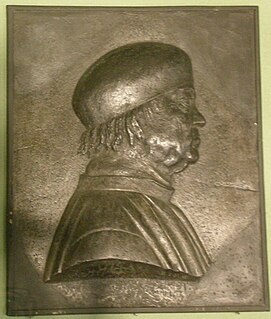 W
WTito Vespasiano Strozzi was an Italian Renaissance poet at the Este court of Ferrara, who figures as an interlocutor in Angelo Decembrio's De politia litteraria.
 W
WPierio Valeriano (1477–1558), born Giovanni Pietro dalle Fosse, was a prominent Italian Renaissance humanist, specializing in the early study of Egyptian hieroglyphs. His most famous works were On the Ill Fortune of Learned Men and Hieroglyphica, sive, De sacris Aegyptiorvm literis commentarii, a study on hieroglyphics and their use in allegory.
 W
WMarco Girolamo Vida or Marcus Hieronymus Vida was an Italian humanist, bishop and poet.
 W
WElizabeth Jane Weston. Elizabeth was an English-Czech poet, known for her Neo-Latin poetry. She had the unusual distinction for a woman of the time of having her poetry published.
 W
WJohn Wilson (c.1588–1667), was a Puritan clergyman in Boston in the Massachusetts Bay Colony, and the minister of the First Church of Boston from its beginnings in Charlestown in 1630 until his death in 1667. He is most noted for being a minister at odds with Anne Hutchinson during the Antinomian Controversy from 1636 to 1638, and for being an attending minister during the execution of Mary Dyer in 1660.
 W
WJohn Winthrop was the 2nd Hollis Professor of Mathematics and Natural Philosophy in Harvard College. He was a distinguished mathematician, physicist and astronomer.